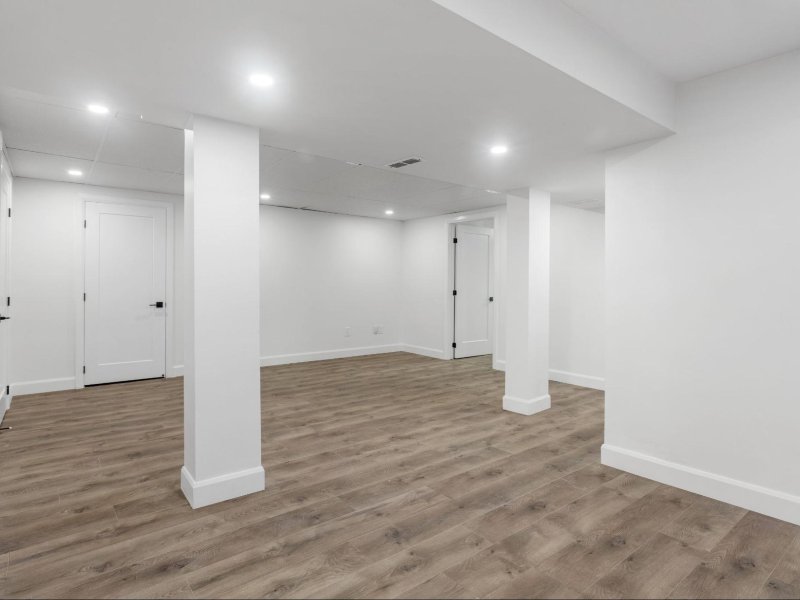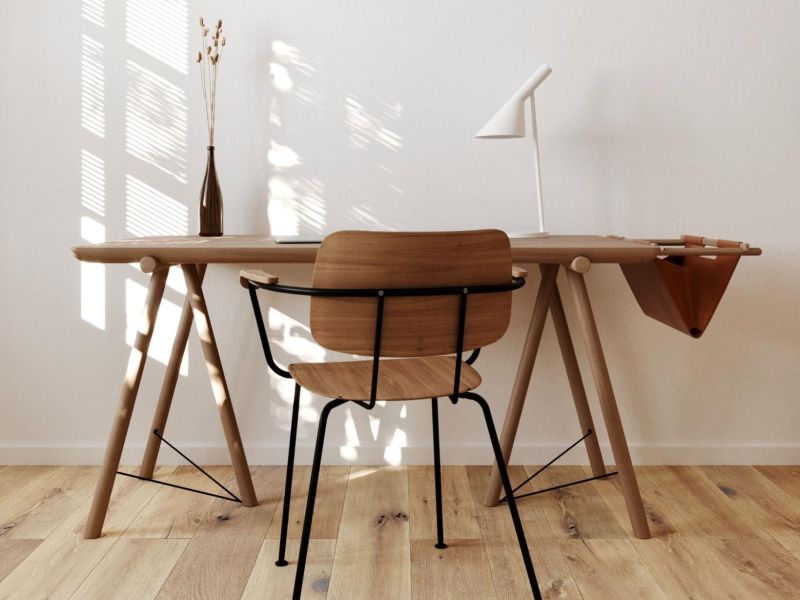When it comes to selecting the flooring for your home, few decisions are as pivotal as choosing between hardwood and laminate. Both options have their unique characteristics and offer distinct advantages and disadvantages. To make an informed decision, it’s essential to consider factors like budget, maintenance, aesthetics, and durability. In this comprehensive guide, we will delve deep into the hardwood vs. laminate debate to help you determine which flooring option suits your needs best.
The Aesthetic Appeal
One of the most significant factors in choosing between hardwood and laminate flooring is their aesthetic appeal. Hardwood flooring is renowned for its timeless beauty and natural warmth. It adds a touch of elegance to any space and can complement various interior styles, from traditional to contemporary. The rich grain patterns, unique color variations, and the authentic look of real wood make hardwood floors a popular choice among homeowners.
On the other hand, laminate flooring has come a long way in replicating the appearance of hardwood. Advances in printing and manufacturing technology have made it possible to mimic the look of different wood species convincingly. Laminate floors offer a wide range of design options, including various wood tones, textures, and even stone or tile patterns. While they may not have the same depth and authenticity as hardwood, laminate floors can provide an attractive and cost-effective alternative.
Durability and Longevity
Durability is a critical consideration when choosing flooring, especially for high-traffic areas. Hardwood flooring is known for its longevity and the ability to withstand decades of use. With proper care and maintenance, hardwood floors can last a lifetime. They can be refinished multiple times to remove scratches and wear, revitalizing their appearance.
Laminate flooring is generally considered less durable than hardwood. While it is resistant to scratches, dents, and stains to some extent, it has a wear layer that can wear down over time. Unlike hardwood, laminate cannot be refinished. When it starts to show signs of wear, the only option is to replace it. However, laminate floors do come with warranties, and their lifespan can be extended with proper care.
Cost Considerations
Cost is often a decisive factor in the hardwood vs. laminate flooring debate. Hardwood flooring is typically more expensive upfront than laminate. The cost of hardwood can vary significantly depending on the wood species, grade, and region. Exotic hardwoods tend to be pricier, while domestic species like oak and maple are more budget-friendly. Additionally, the cost of hardwood installation can be higher due to the need for professional expertise.
Laminate flooring, on the other hand, is known for its affordability. It is a budget-friendly alternative that can mimic the look of hardwood at a fraction of the cost. Laminate is also easier to install, making it a popular choice for DIY enthusiasts. While the initial savings with laminate can be tempting, it’s essential to weigh it against the long-term value of hardwood and its potential to increase your home’s resale value.
Maintenance and Care
Maintenance requirements differ significantly between hardwood and laminate flooring. Hardwood floors need regular care, including sweeping or vacuuming to remove dust and debris, and occasional mopping with a damp cloth. It’s crucial to avoid excessive moisture, as it can damage the wood.
Laminate flooring is relatively low-maintenance. It is more resistant to stains and moisture than hardwood. Cleaning laminate typically involves regular sweeping or vacuuming and occasional damp mopping. However, laminate is not entirely waterproof, and prolonged exposure to moisture can lead to damage. It’s essential to clean up spills promptly and use area rugs in areas prone to moisture, such as kitchens and bathrooms.
Environmental Impact
Sustainability and environmental concerns are becoming increasingly important in the flooring industry. Hardwood flooring can be sourced from sustainable forests, and many manufacturers adhere to responsible forestry practices. However, exotic hardwoods may involve more significant environmental impacts due to long transportation distances and potential habitat disruption.
Laminate flooring is often considered a more environmentally friendly choice. It is typically made from high-density fiberboard (HDF) or medium-density fiberboard (MDF) as the core material, which consists of recycled wood fibers. Laminate also requires fewer trees to produce than solid hardwood. However, the production process can involve chemicals and adhesives that emit volatile organic compounds (VOCs). Be sure to check for laminate products with low VOC emissions if environmental concerns are a priority for you.
Comfort and Feel
The feel underfoot is another factor to consider when choosing between hardwood and laminate flooring. Hardwood floors offer a natural warmth and comfort that many homeowners find appealing. They have a solid, sturdy feel and provide excellent insulation against cold temperatures. Additionally, hardwood can be refinished with different finishes, allowing you to choose between glossy, satin, or matte appearances.
Laminate flooring, while visually convincing, lacks the same warmth and comfort as hardwood. It can feel somewhat synthetic and hollow underfoot. However, some high-end laminate products come with underlayment padding that provides a softer feel and better sound insulation.
Installation Options
Installation ease can vary between hardwood and laminate flooring. Hardwood installation is typically more labor-intensive and requires professional expertise. It involves securing individual planks to the subfloor using nails, staples, or adhesive. Installing hardwood floors also often requires acclimating the wood to the environment to prevent expansion or contraction.
Laminate flooring, on the other hand, is known for its ease of installation. It typically uses a click-and-lock or tongue-and-groove system, allowing planks to be snapped together. Many laminate floors are designed to be floating, meaning they are not attached directly to the subfloor. This simplifies the installation process and makes it suitable for DIY projects.
Resale Value
The impact of your flooring choice on your home’s resale value is a crucial consideration. Hardwood floors are widely regarded as a valuable feature that can increase the appeal and marketability of a home. Potential buyers often view hardwood as a premium feature, which can justify a higher asking price. The classic, timeless look of hardwood can also attract a broader range of buyers.
Laminate flooring, while visually appealing, may not have the same positive effect on resale value as hardwood. Some buyers may see it as a budget-friendly alternative rather than a premium feature. However, the quality and appearance of the laminate can still influence buyers’ perceptions, so choosing a high-quality laminate product is essential if resale value is a concern.
Conclusion: Which Is the Better Choice?
The choice between hardwood and laminate flooring ultimately depends on your specific needs, preferences, and budget. Here are some key takeaways to help you make an informed decision:
- Choose hardwood if: You value the timeless beauty of real wood, have a higher budget, are looking for a long-term investment, and are willing to commit to regular maintenance.
- Choose laminate if: You are on a budget, want a wide range of design options, prefer a DIY-friendly installation, and are comfortable with the look and feel of laminate.
In many cases, the decision may not be a binary one. Some homeowners opt for hardwood in primary living areas and bedrooms and choose laminate for areas with higher moisture levels or lower foot traffic. Ultimately, the best choice is the one that aligns with your lifestyle, aesthetic preferences, and long-term goals for your home.
Before making your final decision, it’s advisable to consult with flooring professionals, request samples of both hardwood and laminate products, and consider the specific needs of each room in your home. Whether you choose the timeless elegance of hardwood or the versatility of laminate, your flooring decision should enhance your living space and meet your unique requirements.








